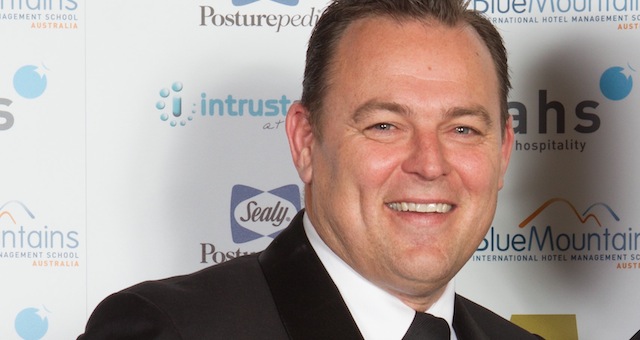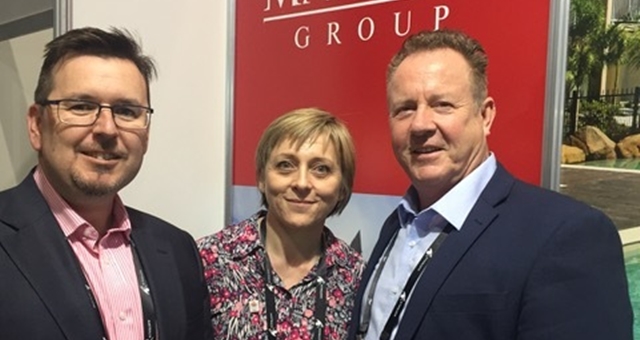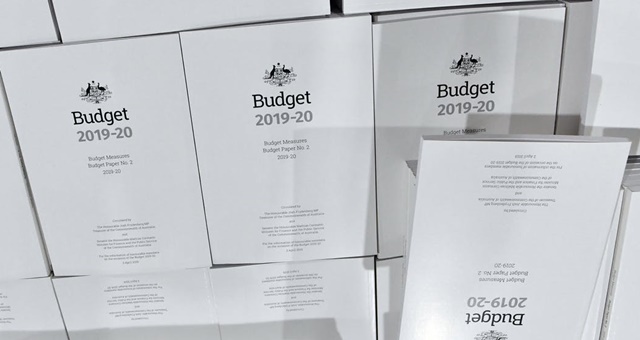
Tourism as an industry has fared well from the 2019 Federal Budget, with industry bodies representing the sector overall and the accommodation industry more specifically issuing messages of approval in response.
Federal Treasurer Josh Frydenberg last night delivered a budget heavy in tax cuts for low and middle-income workers and strong in spending across a multitude of industries including tourism. Highlights included the ongoing freeze in the Passenger Movement Charge, money for infrastructure to build new attractions and new money for the Export Market Development Grants.

Plaudits were led by the Accommodation Association of Australia, with CEO Richard Munro telling HM the budget will deliver wage growth and create consumer demand for domestic tourism through income tax cuts, especially in the current environment of a struggling Australian dollar.
“All the talk of no real wage growth is hard to fathom when our industry has actually paid 3 per cent-plus for three consecutive years under the HIGA award.
“Real wage growth however can be delivered by income tax cuts and we welcome the Coalitions statements on delivering both tax cuts and lifting the tax thresholds ensuring Australians have more discretionary funds to spend,” Munro added.
The AAoA CEO said the government’s expansion of the Small Business Asset Write-Off to cover new asset purchases up to $30k needed to be closer to $100k to have a positive impact on the accommodation sector.

The Budget delivered positive news for the workforce, with significant investment in training, apprenticeships and employer incentives to offer work placements and help fill skilled roles across the sector. Changes to skilled and sponsored visa categories will allow skilled migrants to stay and work in regional Australia for a period of up to five years. Government support will come in the form of a $525.3 million injection to improve the Vocational Education & Training system, with money for 80,000 new apprenticeships in areas of notable skills shortages.
“We strongly support the attention that is being placed on improving the nation’s VET system, which helps produce those workers that are central to the long term viability and quality of Australia’s hotel and hospitality sector,” said TAA National Acting CEO, Bradley Woods.
“Hospitality businesses in regional areas have long grappled with the perennial issue of sourcing staff and tonight’s announcement in relational to regional visa reforms will certainly help alleviate this problem.”
Tourism Australia welcomed the government funding boost, saying the extra money would extend marketing to working holiday-makers and include compensation for foreign exchange shortfalls.
“Additional marketing funding allows TA to expand its activities so that it reaches more international travellers in an increasingly competitive market-place, stimulating further demand for travel to Australia,” a spokesperson said.

The outlook from the Tourism & Transport Forum (TTF) was somewhat more pessimistic, with the organisation saying the Coalition government “missed a key opportunity” to invest in tourism.
TTF Chief Executive Margy Osmond said cash injections to boost infrastructure were welcomed, however now was not the time to be complacent in selling the product to the world, especially in the wake of recent strong full-year inbound arrivals figures from Tourism Research Australia.
“We know that tourism is currently feeling a real boost from a low dollar in a very competitive international market. While we acknowledge the announcement of a $15.6m increase in funding for TA over the forward estimates, it is a relatively meagre increase and a more significant boost is needed to counter previous cuts.
Nonetheless, the TTF welcomed the $50 million investment to build tourism projects around the country; confirming a previously announced funds boost in Kakadu and infrastructure commitments to boost access to regional Australia.

The Budget news was not all positive for the sector, with backpackers to now face an additional $32 on visa application fees – a move which may weaken Australia’s competitiveness and potentially slow the arrival rate of temporary migrant workers – skilled and unskilled – who fill roles across the accommodation and hospitality spectrum.
Australian Tourism Export Council (ATEC) Managing Director, Peter Shelley, said there were more ways the government could support the industry and ensure that #tourismdrivesgrowth.
“All round, the budget has a number of positive elements for the export tourism industry, including measures to increase skilled migration to regional Australia, but the next step will be in delivering Government support for regional capability programs to help businesses service international visitors.”

